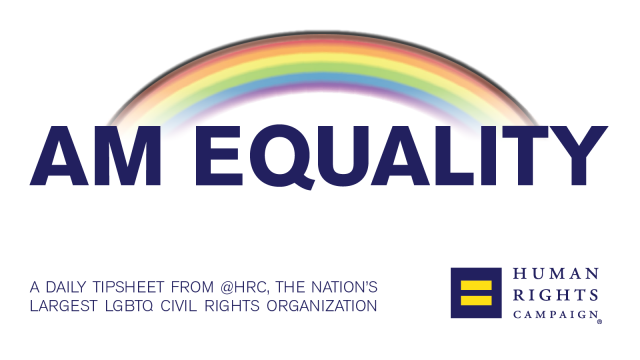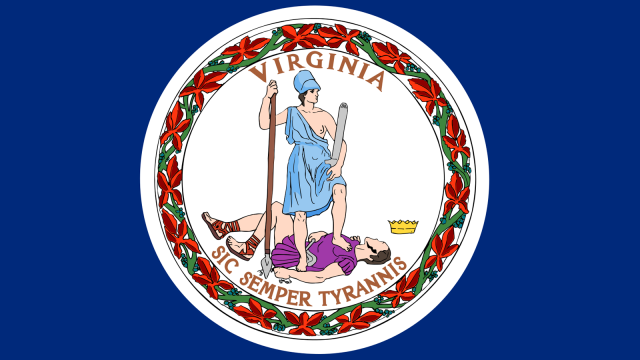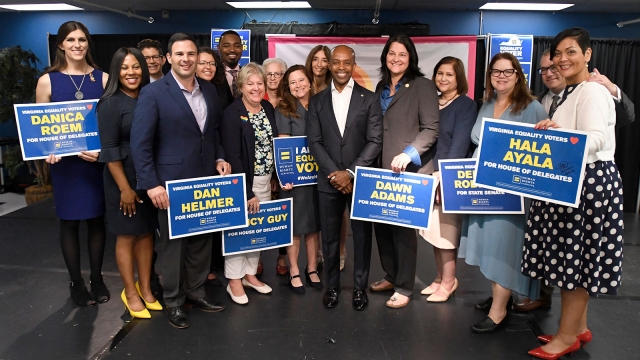TV features more LGBTQ characters than ever before

Campaigning organization GLAAD says US TV is telling more LGBTQ stories and featuring more queer characters than ever before.
The findings came in its annual ‘Where We Are On TV’ report, which it released yesterday.
The report offers a “comprehensive forecast of the lesbian, gay, bisexual, transgender, and/or queer (LGBTQ) characters expected in primetime scripted programming in the 2019-20 television season.”
Related: The world needs a gay superhero more than ever, and it’s about to get one
This is the 24th such report from GLAAD, which four years ago started to analyze original content produced for streaming services such as Netflix, Amazon, and Hulu, besides the major TV broadcast networks and cable.
It says we can look forward to more openly gay and trans characters than ever – thanks to shows such as Pose, The L Word and Batwoman.
Key findings included:
- Of the 879 series regular characters expected to appear on broadcast primetime scripted programming in the coming year, 90 (10.2%) are LGBTQ. This is a record number and an increase on last year’s 8.8%.
- In addition to those regular characters, there are another 30 recurring characters, bringing the total number of regular or recurring characters to 120.
- For the first time, women outnumber men. Of those 120, 53% are women and 47% are men (with one non-binary character).
- For the second year in a row, people of color (POC) LGBTQ outnumber white LGBTQ (52% over 48%) on broadcast networks.
- Looking at cable, it found regular and recurring LGBTQ characters increased to 215 – up from 208.
- Of the cable channels, Showtime comes out on top with 38 regular or recurring characters. The upcoming L Word reboot accounts for a chunk of this number. It was followed by FX and Freeform.
- On streaming services Netflix, Hulu and Amazon, there are 153 regular or recurring LGBTQ characters. Netflix featured the most amongst its original content.
- The number of trans characters rose across broadcast, cable, and streaming from 26 to 38.
- The only slight falls were in bisexual and asexual representation: Bisexual+ characters make up 26% of all LGBTQ characters across all three platforms – a 1% drop on last year.
- GLAAD noted only one asexual character – down from two last year: This is Todd Chavez on Netflix’s BoJack Horseman.
Although welcoming the findings, GLAAD is calling on the industry to do more. By 2025, it wants to see 20% of series regular characters on primetime scripted broadcast series as LGBTQ. It believes this will better reflect the society in which we live.
It released a survey in 2017 that found 20% of Americans aged 18-34 identified as LGBTQ.
Related: Billy Porter becomes first openly gay, black man to win Best Actor & more queer Emmy moments
Announcing the report, Megan Townsend, Director of Entertainment Research & Analysis at GLAAD, said, “There is still work to be done. On cable TV, just three networks [Showtime, FX, and Freeform] account for 44 percent of all LGBTQ representation on primetime scripted series.
“Similarly, programming from four dedicated producers and creators who prioritize inclusion, Greg Berlanti, Lena Waithe, Ryan Murphy, and Shonda Rhimes, accounts for 14 percent of total LGBTQ characters across broadcast, cable, and streaming originals.
“We hope to see all networks follow their lead, and work towards reflecting the reality of their audience and the culture.”
GLAAD President Sarah Kate Ellis said in a statement, “Shows like ‘Pose,’ ‘Schitt´s Creek,’ ‘Batwoman,’ and ‘Billions’ demonstrate that not only are LGBTQ stories and characters on television becoming more diverse, but also that viewers everywhere continue to respond with extreme positivity.”


 Of the 879 series regular characters expected to appear on broadcast primetime scripted programming in the coming year, 90 (10.2 percent) were counted as LGBTQ. This is the highest percentage of LGBTQ regular characters GLAAD has counted on primetime scripted broadcast programming, and up from the previous year’s 8.8 percent. Last year, GLAAD called on the broadcast networks to ensure that 10 percent of primetime broadcast scripted series regulars were LGBTQ by 2020. In just one year, the networks met and exceeded this
Of the 879 series regular characters expected to appear on broadcast primetime scripted programming in the coming year, 90 (10.2 percent) were counted as LGBTQ. This is the highest percentage of LGBTQ regular characters GLAAD has counted on primetime scripted broadcast programming, and up from the previous year’s 8.8 percent. Last year, GLAAD called on the broadcast networks to ensure that 10 percent of primetime broadcast scripted series regulars were LGBTQ by 2020. In just one year, the networks met and exceeded this  Notably for the first time this year, LGBTQ
Notably for the first time this year, LGBTQ  On cable, Showtime is the most LGBTQ-inclusive network with 38 regular and recurring LGBTQ characters expected on the network’s primetime scripted series. The majority of those characters will appear on the upcoming The L Word: Generation Q. FX is next at 31 LGBTQ characters, and Freeform following with 26. These three networks together account for 44 percent (95 characters) of all LGBTQ representation in primetime scripted cable, and 15 of the 20 transgender characters (75 percent) on cable.
On cable, Showtime is the most LGBTQ-inclusive network with 38 regular and recurring LGBTQ characters expected on the network’s primetime scripted series. The majority of those characters will appear on the upcoming The L Word: Generation Q. FX is next at 31 LGBTQ characters, and Freeform following with 26. These three networks together account for 44 percent (95 characters) of all LGBTQ representation in primetime scripted cable, and 15 of the 20 transgender characters (75 percent) on cable. The number of transgender characters is up this year, from 26 to 38 characters across broadcast, cable, and streaming. Of those 38 characters, 21 are transgender
The number of transgender characters is up this year, from 26 to 38 characters across broadcast, cable, and streaming. Of those 38 characters, 21 are transgender  While the number of
While the number of 




 3. Make some internet friends
3. Make some internet friends Anna
Anna